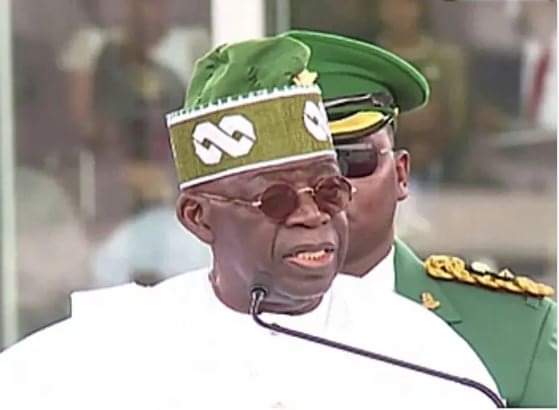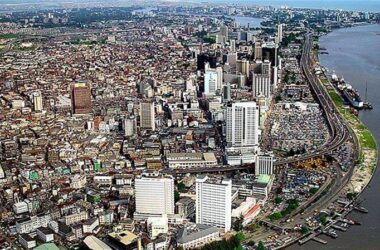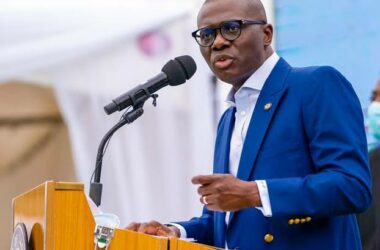REMOVAL OF FUEL SUBSIDY: Reverberations From Tinubu’s Opening Salvo
‘Fuel subsidy is GONE!’
It took Nigeria’s new President just a few seismic words, uttered in a seemingly off-the-cuff manner in his very first speech as Commander-in-Chief, to usher in the latest chapter in a saga that has, for the most part, defined the fortunes of Africa’s largest economy and the welfare of its people for too long. Like a pendulum, the fuel subsidy saga has, over the years, swung from one extreme to the other – between total abrogation and total acceptance – as Nigerians were made to choose between the removal of government subsidies to the petrol-importation sector and skyrocketing prices of energy products on the one hand, and an indefinite continuation of the practice of bankrolling that sector and the maintenance of stable and affordable prices, on the other. Long before President Bola Ahmed Tinubu’s inauguration day pronouncement on May 29, 2023, policymakers, stakeholders and ordinary Nigerians alike seemed to have resigned themselves to the idea that (like the fictional Hotel California in the famous song by the American group, The Eagles) the fuel subsidy conundrum was a place you could check out of anytime you liked – but NEVER ACTUALLY LEAVE.
The impact of the President’s pronouncement couldn’t be more immediate – or explosive. Within hours of the speech, hundreds of Nigerians poured into the streets – in their vehicles or on foot, armed with jerrycans – to grab what they believed would be the last drops of fuel to be sold at the regular government price. But only a few were lucky; in fact, by that time, many filling stations had stopped selling altogether, while others increased prices by more than 200% a litre (including for cheaper stock bought at the old, subsidized rate), thereby triggering an artificial scarcity. By Wednesday (barely two days after the President’s speech) even the government’s oil company, the Nigerian National Petroleum Corporation) had announced that it was going to raise the price of petrol.
To quote the Hotel California song again, Nigerians became prisoners of their own device.
Exactly how did this device come to be? And how did it exert such a stranglehold on the economic profile and fortunes of Africa’s biggest oil producer? Some would say it is simply one of those contradictions only a country like Nigeria is capable of sustaining and normalizing over time.
By itself, though, a subsidy is not necessarily a bad thing. It is usually government’s way of lessening the burden or cost of certain products to the generality of the people – and it is a global phenomenon.’ We know, for instance, about France’s agricultural subsidies, which are among the most generous on the planet.
According to experts, there are two types of subsidy; direct and indirect. Direct subsidies are targeted towards a particular group or sector, while indirect subsidies include government-supported price reductions for required goods or services. Indirect subsidies lead to products being bought at below-market rates, as the government fixes the price of, say, petrol below the ‘international’ rate – and pays the difference. The removal of subsidy, then, simply means the international market will henceforth decide what the price of petroleum in Nigeria will be.
Of course, fuel subsidies – in one form or another – are not new to Nigeria. They have been in place since the early 1970s, when government routinely sold petrol to Nigerians at below the cost price (though few Nigerians knew it at the time). Subsidies became institutionalised in the late 1970s following the Obasanjo Administration’s promulgation of the Price Control Act which made it illegal for some products to be sold above the regulated price – in order to cushion the effects of a worldwide increase in energy prices..
As a matter of fact, the period 1970-1979 was an era of all-round subsidies. Virtually everything in Nigeria was heavily subsidised – education, health, electricity, water supply, air travel and even so-called ‘essential commodities’ such as milk, sugar, rice, wheat and beverages. Subsidies were sustained by the oil boom Nigeria enjoyed as a result of a global ‘oil-shock’ (ie an astronomic rise in oil prices) occasioned by the Arab-Israeli conflict. As part of the subsidy jamboree, government workers received an astronomical boost in their wages in 1975 under the infamous “Udoji Awards.”
This jamboree was short lived, however. Following a steep drop in oil prices in the 1980s, government was no longer able to sustain its social spending, or even to finance imports of essential commodities. This state of affairs quickly led to shortages of basic items.
But that did not end the idea of subsidy. Instead, the 1980s and ’90s saw a phenomenon that helped deepen the very infrastructure of, and provide the justification (if that’s the word) for, the continuation of fuel subsidy payments: ie the dysfunction of Nigeria’s four main oil refineries in Port Harcourt, Warri and Kaduna, which set the stage for the strange phenomenon of a major exporter of crude oil having to import the refined version of what is obtainable in its own backyard. At the time, though it was understood that subsidy payments to private importers and marketers of refined products would only last as long as it took the government to finish its ‘Turnaround Maintenance’ of said refineries.
Sadly though, many years on, the only ‘turnaround’ those refineries have seen is in the fortunes of their workforce and others, who still earn their pay despite not having refined a single litre of crude oil since at least the mid-1990s! The toll on the nation’s finances has been staggering, to say the least.
Because of that, successive administrations have tried to scrap these payments – but so far to no avail. From President Shehu Shagari’s decision to increase the price of petrol from 15.3 kobo a litre to 20 kobo; to President Ibrahim Babangida’s attempts to implement the controversial Structural Adjustment Programme (or SAP) as advised by the International Monetary Fund, which sparked a public uproar that eventually forced him to restore the subsidy regime, all other administrations, including the immediate past regimes of Presidents Goodluck Jonathan and Muhammadu Buhari have all trodden that path – before simply deciding to leave well alone, preferring rather to borrow money to finance the national budget and make up for spending shortfalls, year after year.
Meanwhile, no thanks to inflation and the steady decline of the Nigerian naira against major world currencies, fuel subsidy has taken a larger and larger chunk of federal spending, to the detriment of other competing economic sectors – an ever-present and growing liability to Nigeria’s budgetary allocations for about four decades now. For example, subsidy payments have amounted to between two and five times the size of the education budget and up to seven times the health budget.
Why has Almighty King Fuel Subsidy reigned over the Nigerian firmament for so long, well after other subsidies have since fallen by the wayside? If the comatose state of our refineries is the stated cause of the problem and has provided the raison d’etre for subsidy payments to marketers, why not simply fix these refineries? Why is it rocket science?
The answer to that question, say the more cynical observers of the Nigerian energy ecosystem lies in the failure (or refusal) to fix our refineries – because the individuals and interests benefiting from the subsidy regime are extremely powerful, and they cut across a broad segment of the upper echelons of government, politics and business in Nigeria. They say these interests have mastered the art of maximizing their benefits from subsidies by inflating figures for oil imports, and by over-invoicing the government for the cost of imports, among other complex systems of graft. They have used their political connections and influence, these observers say, to scuttle every attempt at removing subsidies, including sabotaging the revival of the aforementioned refineries. Apart from politicians, these observers also point the finger at high-ranking government officials, business tycoons, and officials of the NNPC, the Nigerian Ports Authority (NPA) and the Nigeria Customs Service.
Observers also blame the very nature of politics in Nigeria for the persistence of the subsidy regime. Nigerians tend to use oil subsidy removal protests as a rallying-point for many of their grouses against a sitting government, and some politicians deliberately miscommunicate the economics of subsidies in order to convince their followers that the government simply intends to divert funds meant for fuel subsidies to private coffers. Which is not a hard thing to do, as Nigerians have long lost faith in government initiatives, no matter how well-intentioned. Also, various administrations have made it easy for that perception to take hold with their lack of political will and failure to improve economic conditions in the country. Arguably, it would have been politically easier to remove fuel subsidies if government had done more to provide jobs, entrepreneurial opportunities and other forms of economic empowerment.
Whatever the value of the subsidy regime to the political elite and the interests they represent, economic and industry experts are unanimous in agreeing that it is bad economics, in that subsidies distort markets and discourage investments. Not to mention the massive corruption and entrenched inefficiency routinely associated with its implementation in Nigeria – on the part of both public and private sector players. As a matter of fact, a National Assembly committee hearing some years back made the startling discovery that many subsidy claims were NOT even for consumed fuel. Another report has it that in 2011 alone, 197 subsidy transactions worth N232bn were illegitimate to start with. And that’s just the tip of a Titanic-sized iceberg.
Analysts are therefore, of the opinion that the removal of subsidy will free allocations which can be channelled into the provision of infrastructure like roads, education, healthcare, power, security, creation of jobs and even the development of the downstream energy sector. It will also improve the country’s GDP growth, clamp down on oil theft and pipeline vandalism, minimise environmental pollution, stem foreign exchange shortages and enhance the provision of basic benefits for society’s most vulnerable groups.
To this end, what must the administration of President Bola Ahmed Tinubu do – in the short, medium and long terms – to give teeth to his rather abrupt pronouncement on fuel subsidies on Inauguration Day? It has been said that the most meaningful fundamental of change which is powerful enough to confront corruption and mismanagement may not be so much political as economic. Given his antecedents as a former Governor of Lagos State – the economic hub of not just Nigeria but the West African sub-region as a whole – President Tinubu has acquired a reputation as something of a welfarist but pragmatic politician who believes in, and strives to promote, the supremacy of market forces when it comes to economic direction and growth.
Understandably, there has been a public outcry over the new pump price of petroleum products following the removal of subsidies – with petrol, in particular, currently selling in some locations across the country at well over N500 per litre. Like previous attempts to remove subsidies, government’s action has brought about a sharp rise in the cost of living in a country where the minimum wage is a paltry N30,000. In response, organised labour has threatened industrial action to compel the government to rescind its decision – at least until all other mitigating fundamentals are in place. The increase in pump price may not seem huge by global standards (as past administrations have always pointed out) but it will have far-reaching repercussions in a country where one in three persons is unemployed, inflation is at a record 22% and 96 million people live below the poverty line – ie below $1.90 per day. Nigerians are already spending more than 60% of their income on food and transportation, especially in major cities lIke Lagos. Not only that, most economic activity in Nigeria is run on thousands of fuel-guzzling generators that power businesses because of Nigeria’s chronic lack of steady electricity.
Against the backdrop of the current minimum wage, then, many Nigerians will be further impoverished by the removal of fuel subsidy.
Unless, that is, President Tinubu moves speedily to put said fundamentals in place. In his comments following that fateful inauguration speech, he has made clear his determination to go through with the subsidy removal in the face of opposition and threats of industrial upheaval, driven by his conviction that it is now or never. Analysts are, therefore, urging his administration to do the following:
– Fix the refineries;
– Engage the labour union and civil society on the imperative of subsidy removal and the way forward;
– Reel out palliatives, including loans with generous interest requirements, and the creation of a student loan scheme;
– Create agricultural hubs to boost the rural economy. Make sure agriculture gets a huge chunk of the saved petrol subsidy funds;
– Reduce bank interest rates to stimulate business activities and increase the flow of money in Nigeria;
– Within 90 days, securitise the amount expended to support subsidies and trade them in the international and domestic capital markets as high yield notes issued by JP Morgan. The security should be underwritten by a reputed international insurer;
– Immediately increase corporate taxes;
– Reduce the cost of governance, which is as unsustainable as the subsidy regime itself! Immediately slash the salaries/allowances/pensions, etc of political office-holders (elected and appointed) at all levels of governance;
– Ensure that NNPC makes energy products readily available, as well as eliminates the Petroleum Equalisation Fund (PEF), which has been nothing short of a drain-pipe;
– Reopen Nigeria’s international borders; and
– Augment workers salaries; that’s the only language organised labour wants to hear at this time.
A former activist who cut his political teeth when he took his stand in the struggle for democracy and the liberation of our people from the shackles of military dictatorship, President Tinubu must now lead the way in ensuring that members of the political class no longer mismanage the country’s oil wealth by turning the post-subsidy regime into yet another profiteering racket. For too long, the generality of Nigerians have nurtured the unpleasant feeling that the political elites in this country are always asking the ordinary people to make sacrifices during tough times – without making any of their own. It is a perception that must not be allowed to fester and breed social discontent. The sacrifices to be made must cut across the board – and be seen to do so.
President Bola Ahmed Tinubu has certainly hit the ground running, as he promised to do in the run-up to his ascension to the top job. This is his opportunity to rewrite the narrative pertaining to the social contract between the government and the governed – beginning with how his administration handles the dynamic of the post-fuel subsidy economy.






